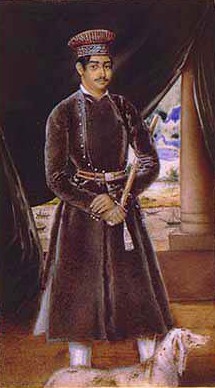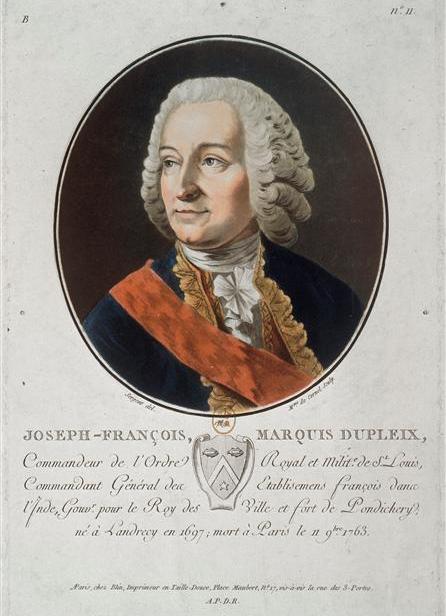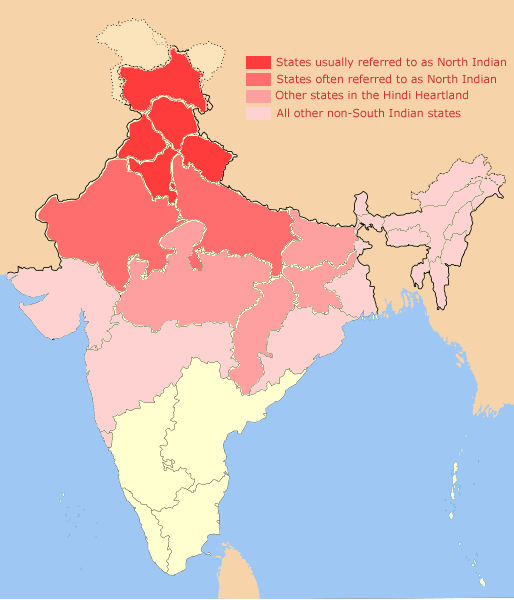|
Ryotwari
The ryotwari system was a land revenue system in British India introduced by Thomas Munro, which allowed the government to deal directly with the cultivator ('ryot') for revenue collection and gave the peasant freedom to cede or acquire new land for cultivation. Description This system was in operation for nearly 5 years and had many features of revenue system of the Mughals. It was instituted in some parts of India, one of the three main systems used to collect revenues from the cultivators of agricultural land. These taxes included un differentiated land revenue and rents, collected simultaneously. Where the land revenue was imposed directly on the yots(the individual cultivators who actually worked the land) the system of assessment was known as ryotwari. Where the land revenue was imposed indirectly through agreements made with amindarsthe system of assessment was known as zamindari. In Bombay, Madras, Assam and Burma the Zamindar usually did not have a position as a mid ... [...More Info...] [...Related Items...] OR: [Wikipedia] [Google] [Baidu] |
Company Rule In India
Company rule in India (sometimes, Company ''Raj'', from hi, rāj, lit=rule) refers to the rule of the British East India Company on the Indian subcontinent. This is variously taken to have commenced in 1757, after the Battle of Plassey, when the Nawab of Bengal was defeated and replaced with another individual who had the support of the East India Company; or in 1765, when the Company was granted the ''diwani'', or the right to collect revenue, in Bengal and Bihar; or in 1773, when the Company abolished local rule (Nizamat) and established a capital in Calcutta, appointed its first Governor-General, Warren Hastings, and became directly involved in governance. The rule lasted until 1858, when, after the Indian Rebellion of 1857 and consequently of the Government of India Act 1858, the British government assumed the task of directly administering India in the new British Raj. Expansion and territory The English East India Company ("the Company") was founded in 1600, as ' ... [...More Info...] [...Related Items...] OR: [Wikipedia] [Google] [Baidu] |
Zamindar
A zamindar ( Hindustani: Devanagari: , ; Persian: , ) in the Indian subcontinent was an autonomous or semiautonomous ruler of a province. The term itself came into use during the reign of Mughals and later the British had begun using it as a native synonym for “estate”. The term means ''land owner'' in Persian. Typically hereditary, from whom they reserved the right to collect tax on behalf of imperial courts or for military purposes. During the period of British colonial rule in India many wealthy and influential zamindars were bestowed with princely and royal titles such as ''maharaja'' (great king), ''raja/rai'' (king) and ''nawab''. During the Mughal Empire, zamindars belonged to the nobility and formed the ruling class. Emperor Akbar granted them mansabs and their ancestral domains were treated as jagirs. Some zamindars who were Hindu by religion and brahmin or kayastha or kshatriya by caste were converted into Muslims by the Mughals. During the colonial era, the ... [...More Info...] [...Related Items...] OR: [Wikipedia] [Google] [Baidu] |
Zamindar
A zamindar ( Hindustani: Devanagari: , ; Persian: , ) in the Indian subcontinent was an autonomous or semiautonomous ruler of a province. The term itself came into use during the reign of Mughals and later the British had begun using it as a native synonym for “estate”. The term means ''land owner'' in Persian. Typically hereditary, from whom they reserved the right to collect tax on behalf of imperial courts or for military purposes. During the period of British colonial rule in India many wealthy and influential zamindars were bestowed with princely and royal titles such as ''maharaja'' (great king), ''raja/rai'' (king) and ''nawab''. During the Mughal Empire, zamindars belonged to the nobility and formed the ruling class. Emperor Akbar granted them mansabs and their ancestral domains were treated as jagirs. Some zamindars who were Hindu by religion and brahmin or kayastha or kshatriya by caste were converted into Muslims by the Mughals. During the colonial era, the ... [...More Info...] [...Related Items...] OR: [Wikipedia] [Google] [Baidu] |
Thomas Munro
Major-General Sir Thomas Munro, 1st Baronet KCB (27 May 17616 July 1827) was a Scottish soldier and British colonial administrator. He served as an East India Company Army officer and statesman, in addition to also being the governor of Madras Presidency. Background Munro was born in Glasgow on 27 May 1761 to the Glaswegian merchant Alexander Munro. Thomas' grandfather was a tailor, who prospered by successful investments in American tobacco. After working as a bank clerk, Alexander Munro joined the family's prosperous tobacco business, but was ruined by the collapse of the tobacco trade during the American Revolutionary War. Thomas was also claimed to be a direct descendant of George Munro, 10th Baron of Foulis (died 1452), chief of the Highland Clan Munro, but clan historian R. W. Munro has contested this claim. Thomas was educated at the University of Glasgow. While at school, Thomas was distinguished for a singular openness of temper, a mild and generous disposition, w ... [...More Info...] [...Related Items...] OR: [Wikipedia] [Google] [Baidu] |
Thomas Munro, 1st Baronet
Major-General Sir Thomas Munro, 1st Baronet KCB (27 May 17616 July 1827) was a Scottish soldier and British colonial administrator. He served as an East India Company Army officer and statesman, in addition to also being the governor of Madras Presidency. Background Munro was born in Glasgow on 27 May 1761 to the Glaswegian merchant Alexander Munro. Thomas' grandfather was a tailor, who prospered by successful investments in American tobacco. After working as a bank clerk, Alexander Munro joined the family's prosperous tobacco business, but was ruined by the collapse of the tobacco trade during the American Revolutionary War. Thomas was also claimed to be a direct descendant of George Munro, 10th Baron of Foulis (died 1452), chief of the Highland Clan Munro, but clan historian R. W. Munro has contested this claim. Thomas was educated at the University of Glasgow. While at school, Thomas was distinguished for a singular openness of temper, a mild and generous disposit ... [...More Info...] [...Related Items...] OR: [Wikipedia] [Google] [Baidu] |
Subsidiary Alliance
A subsidiary alliance, in South Asian history, was a tributary alliance between a South Asian state and a European East India Company. Under this system, an Indian ruler who formed a treaty with the company in question would be provided with protection against any external attacks. In return, the ruler was required to: * keep the company's army at the capital of their state, * give either money or territory to the company for the maintenance of the troops, * expel all other Europeans from their state, whether they were employed in the army or in the civil service, * keep a European official called 'resident' at the capital of their state who would oversee all negotiations and communications with other states, meaning that the ruler was to have no direct correspondence or relations with other states, without the resident's approval. The ruler was also forbidden from maintaining a standing army or waging wars. Development The system of subsidiary alliances was pioneered b ... [...More Info...] [...Related Items...] OR: [Wikipedia] [Google] [Baidu] |
Northern India
North India is a loosely defined region consisting of the northern part of India. The dominant geographical features of North India are the Indo-Gangetic Plain and the Himalayas, which demarcate the region from the Tibetan Plateau and Central Asia. The term North India has varying definitions. The Ministry of Home Affairs in its Northern Zonal Council Administrative division included the states of Haryana, Himachal Pradesh, Punjab and Rajasthan and Union Territories of Chandigarh, Delhi, Jammu and Kashmir and Ladakh. The Ministry of Culture in its ''North Culture Zone'' includes the state of Uttarakhand but excludes Delhi whereas the Geological Survey of India includes Uttar Pradesh and Delhi but excludes Rajasthan and Chandigarh. Other states sometimes included are Bihar, Gujarat, Jharkhand, Madhya Pradesh and West Bengal. North India has been the historical centre of the Mughal Empire, the Delhi Sultanate and the British Indian Empire. It has a diverse culture, and incl ... [...More Info...] [...Related Items...] OR: [Wikipedia] [Google] [Baidu] |
Bengal
Bengal ( ; bn, বাংলা/বঙ্গ, translit=Bānglā/Bôngô, ) is a geopolitical, cultural and historical region in South Asia, specifically in the eastern part of the Indian subcontinent at the apex of the Bay of Bengal, predominantly covering present-day Bangladesh and the Indian state of West Bengal. Geographically, it consists of the Ganges-Brahmaputra delta system, the largest river delta in the world and a section of the Himalayas up to Nepal and Bhutan. Dense woodlands, including hilly rainforests, cover Bengal's northern and eastern areas, while an elevated forested plateau covers its central area; the highest point is at Sandakphu. In the littoral southwest are the Sundarbans, the world's largest mangrove forest. The region has a monsoon climate, which the Bengali calendar divides into six seasons. Bengal, then known as Gangaridai, was a leading power in ancient South Asia, with extensive trade networks forming connections to as far away as Roman Egy ... [...More Info...] [...Related Items...] OR: [Wikipedia] [Google] [Baidu] |
Governor-General Of India
The Governor-General of India (1773–1950, from 1858 to 1947 the Viceroy and Governor-General of India, commonly shortened to Viceroy of India) was the representative of the monarch of the United Kingdom and after Indian independence in 1947, the representative of the British monarch. The office was created in 1773, with the title of Governor-General of the Presidency of Fort William. The officer had direct control only over Fort William but supervised other East India Company officials in India. Complete authority over all of British territory in the Indian subcontinent was granted in 1833, and the official came to be known as the "Governor-General of India". In 1858, because of the Indian Rebellion the previous year, the territories and assets of the East India Company came under the direct control of the British Crown; as a consequence, the Company rule in India was succeeded by the British Raj. The governor-general (now also the Viceroy) headed the central governm ... [...More Info...] [...Related Items...] OR: [Wikipedia] [Google] [Baidu] |
Sir Edward Colebrooke, 4th Baronet
Sir Thomas Edward Colebrooke, 4th Baronet (19 August 1813 – 11 January 1890), who was known as Sir Edward Colebrooke,Binns, p.xv. According to Binns, "His name was Thomas Edward Colebrooke but he was always known as Sir Edward and signed himself Edward Colebrooke". was a British politician. Early life and education Edward was born in Calcutta,Binns, pp. 15–17. the second son of Henry Thomas Colebrooke and Elizabeth (née Wilkinson) Colebrooke. He and his elder brother George Vernon went to Eton College. He then attended the East India Company College at Hertford Heath, Hertfordshire in preparation for appointment to a post in India with the East India Company. India Colebrooke arrived in India in June 1832 and worked in Allahabad, leaving India on 9 October 1835 and arriving home in London in January 1836 to comfort his father following the unexpected death of his elder brother. Colebrooke baronetcy Edward's brother George died on 9 February 1835 and his father i ... [...More Info...] [...Related Items...] OR: [Wikipedia] [Google] [Baidu] |
East India Company
The East India Company (EIC) was an English, and later British, joint-stock company founded in 1600 and dissolved in 1874. It was formed to trade in the Indian Ocean region, initially with the East Indies (the Indian subcontinent and Southeast Asia), and later with East Asia. The company seized control of large parts of the Indian subcontinent, colonised parts of Southeast Asia and Hong Kong. At its peak, the company was the largest corporation in the world. The EIC had its own armed forces in the form of the company's three Presidency armies, totalling about 260,000 soldiers, twice the size of the British army at the time. The operations of the company had a profound effect on the global balance of trade, almost single-handedly reversing the trend of eastward drain of Western bullion, seen since Roman times. Originally chartered as the "Governor and Company of Merchants of London Trading into the East-Indies", the company rose to account for half of the world's trade du ... [...More Info...] [...Related Items...] OR: [Wikipedia] [Google] [Baidu] |
John Stuart Mill
John Stuart Mill (20 May 1806 – 7 May 1873) was an English philosopher, political economist, Member of Parliament (MP) and civil servant. One of the most influential thinkers in the history of classical liberalism, he contributed widely to social theory, political theory, and political economy. Dubbed "the most influential English-speaking philosopher of the nineteenth century", he conceived of liberty as justifying the freedom of the individual in opposition to unlimited state and social control. Mill was a proponent of utilitarianism, an ethical theory developed by his predecessor Jeremy Bentham. He contributed to the investigation of scientific methodology, though his knowledge of the topic was based on the writings of others, notably William Whewell, John Herschel, and Auguste Comte, and research carried out for Mill by Alexander Bain. He engaged in written debate with Whewell. A member of the Liberal Party and author of the early feminist work '' The Subjection ... [...More Info...] [...Related Items...] OR: [Wikipedia] [Google] [Baidu] |



_-_Copy.jpg)





